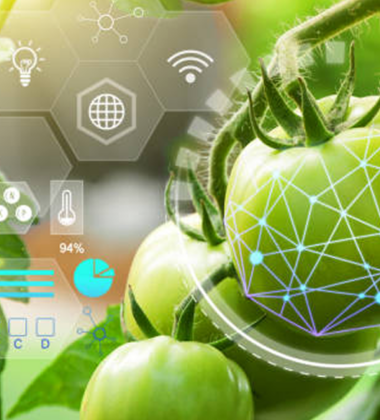Imagine a world where every product you buy comes with a digital passport, detailing its journey from farm to fork. A world where transparency, trust, and traceability are not just buzzwords but a reality. This is the promise of blockchain technology, and it’s revolutionizing the supply chain for global products.
The Global Products Expo, set to take place from June 26–28, 2025, at the New Jersey Expo Center, is at the forefront of this transformation. With industries like smoke, vape, CBD, cannabis, food, and beverages taking center stage, blockchain is becoming a game-changer for ensuring product authenticity, safety, and sustainability.
In this spotlight, we’ll explore how blockchain is reshaping the supply chain and what it means for industry professionals.
1. What is Blockchain, and Why Does It Matter?
Blockchain is a decentralized, digital ledger that records transactions in a secure, transparent, and immutable way. Each “block” in the chain contains data, and once added, it cannot be altered. This makes blockchain ideal for supply chain management, where transparency and trust are critical.
Key Benefits of Blockchain:
- Transparency: Every transaction is recorded and visible to all parties, ensuring accountability.
- Traceability: Products can be tracked at every stage of the supply chain, from raw materials to the end consumer.
- Security: Data is encrypted and decentralized, reducing the risk of fraud or tampering.
2. Blockchain in Food Traceability
Food safety and traceability are major concerns for consumers and regulators alike. Blockchain is addressing these challenges head-on:
Farm-to-Fork Transparency
Blockchain enables consumers to trace the origin of their food with a simple scan of a QR code. For example, a shopper can verify that their organic strawberries were grown on a specific farm and transported under optimal conditions.
Recall Management
In the event of a food safety issue, blockchain allows companies to quickly identify and isolate affected products, minimizing risk and reducing waste.
Sustainability Verification
Blockchain can verify claims like “fair trade” or “sustainably sourced,” giving consumers confidence in their purchases.
3. Blockchain in Cannabis and CBD Supply Chains
The cannabis and CBD industries face unique challenges, including regulatory compliance and product authenticity. Blockchain is proving to be a powerful tool:
Regulatory Compliance
Blockchain ensures that every step of the supply chain complies with local and federal regulations, from cultivation to distribution.
Product Authenticity
Counterfeit products are a major issue in the cannabis industry. Blockchain provides a tamper-proof record of a product’s journey, ensuring its authenticity.
Consumer Trust
By offering transparency, blockchain builds trust with consumers who want to know exactly what they’re buying and consuming.
4. Blockchain in Beverage and Smoke Industries
From craft beer to premium cigars, blockchain is enhancing supply chain efficiency and consumer confidence:
Provenance Tracking
Blockchain allows brands to showcase the journey of their products, from the sourcing of ingredients to the final packaging. This is particularly valuable for luxury or artisanal products.
Anti-Counterfeiting
Counterfeit goods cost the global economy billions annually. Blockchain’s immutable records make it nearly impossible for fake products to enter the supply chain.
Sustainability Claims
Blockchain can verify eco-friendly practices, such as sustainable farming or carbon-neutral production, enhancing brand reputation.
5. Real-World Examples of Blockchain in Action
Several companies are already leveraging blockchain to transform their supply chains:
Walmart
Walmart uses blockchain to track the origin of leafy greens, reducing the time it takes to trace contaminated products from days to seconds.
Nestlé
Nestlé’s blockchain initiative allows consumers to trace the journey of their coffee beans, from farm to cup.
Beverage Brands
Companies like BrewDog and Provenance are using blockchain to provide transparency about the sourcing and production of their beverages.
6. Challenges and Considerations
While blockchain offers immense potential, it’s not without challenges:
Implementation Costs
Adopting blockchain technology requires significant investment in infrastructure and training.
Data Privacy
While blockchain is secure, ensuring compliance with data privacy regulations like GDPR is essential.
Industry Collaboration
For blockchain to be effective, all parties in the supply chain must adopt the technology, which requires collaboration and standardization.
7. The Future of Blockchain in Supply Chains
The adoption of blockchain is still in its early stages, but its potential is limitless:
Smart Contracts
Blockchain-powered smart contracts can automate transactions, such as payments or quality checks, based on predefined conditions.
IoT Integration
Combining blockchain with the Internet of Things (IoT) can enable real-time tracking of products, from temperature-controlled shipments to warehouse inventory.
Global Standardization
As blockchain adoption grows, we can expect industry-wide standards to emerge, making it easier for companies to integrate the technology into their supply chains.
8. Conclusion: A Transparent, Trustworthy Future
Blockchain is more than just a technological innovation—it’s a movement toward greater transparency, trust, and efficiency in global supply chains. For industries like food, cannabis, beverages, and smoke, blockchain offers a way to build consumer confidence, ensure regulatory compliance, and enhance sustainability.
Ready to explore how blockchain can transform your supply chain? Join us at the Global Products Expo and discover the latest innovations in blockchain technology. Don’t miss out on this incredible opportunity to connect, learn, and grow.
By embracing blockchain, you’ll ensure your supply chain stands out in the evolving global marketplace. See you at the New Jersey Expo Center, where the future of supply chains comes to life!





